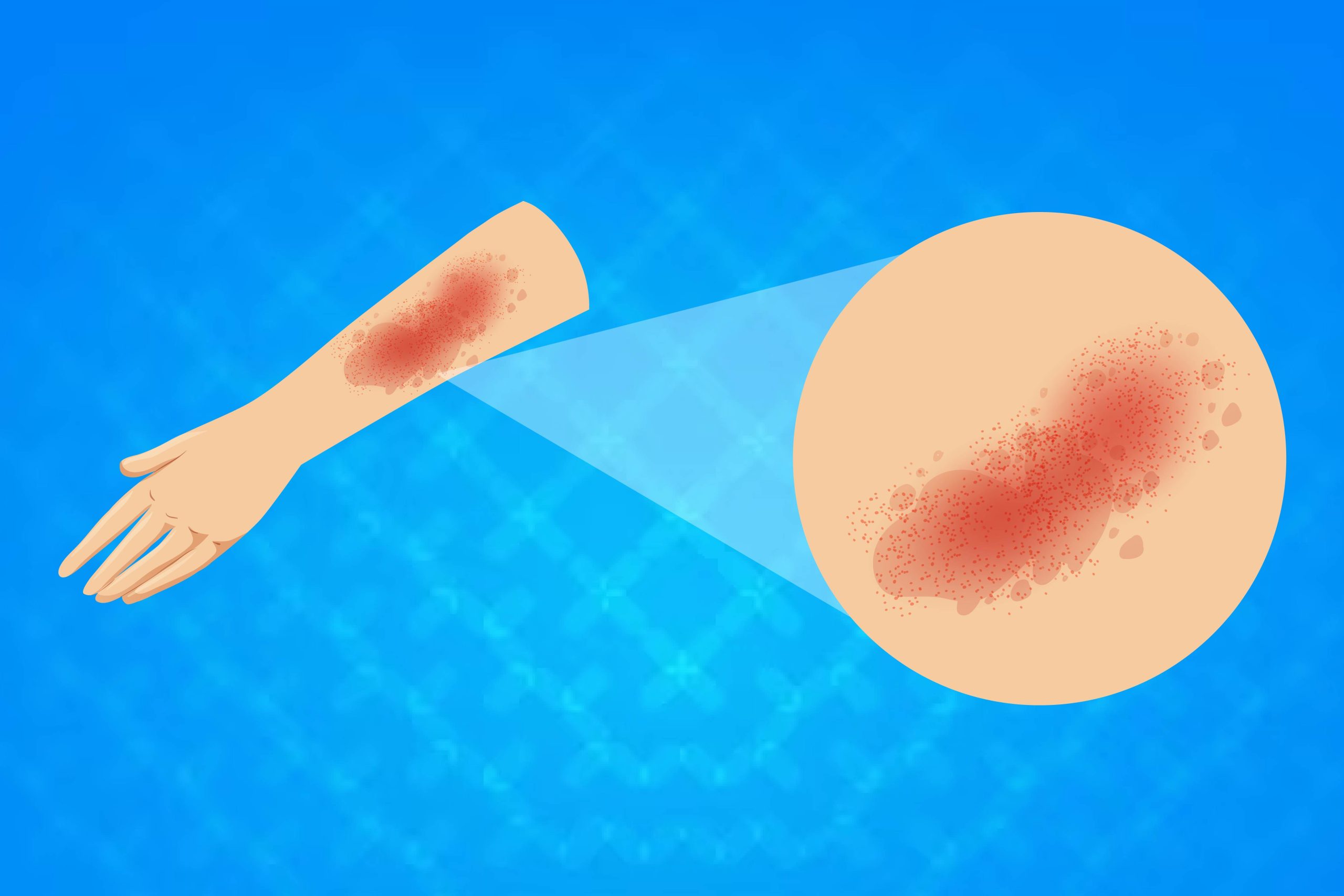Rashes

Overview
A rash is a change in the skin’s color, appearance, or texture. It may appear as redness, bumps, blisters, or patches of skin that are itchy, painful, or irritated. Rashes can be caused by a wide range of factors, including:
- Allergic reactions to certain foods, medications, or chemicals
- Infections, such as bacterial or viral infections
- Insect bites or stings
- Contact with irritants, such as soaps or detergents
- Autoimmune disorders, such as lupus or psoriasis
- Heat or sweat rash due to excessive sweating or hot weather
- Certain medications or medical treatments, such as chemotherapy
Symptoms
Redness
The affected area of the skin may appear red or inflamed.
Bumps
Rashes may appear as raised bumps or fluid-filled blisters on the skin.
Itching
Many rashes are itchy and can cause a significant amount of discomfort.
Scaling
Some rashes may cause the skin to flake or peel.
Crusting
In some cases, rashes may form a crust or ooze fluid.
Pain
Rashes may be painful, particularly if they are caused by an infection or injury.
Fever
In some cases, rashes may be accompanied by a fever, particularly if they are caused by an infection.
Treatments
The treatment for a rash depends on its cause and severity. Some common treatments include:
- Topical creams or ointments: Over-the-counter or prescription topical creams or ointments can help relieve itching and reduce inflammation.
- Oral medications: In some cases, oral medications such as antihistamines, antibiotics, or corticosteroids may be necessary to treat the rash.
- Moisturizers: Applying moisturizers can help relieve dry or itchy skin associated with a rash.
- Cool compresses: Applying cool compresses to the affected area can help reduce swelling and relieve itching.
- Avoiding triggers: If the rash is caused by an allergen or irritant, avoiding exposure to the trigger can help prevent further outbreaks.
In some cases, a rash may require medical attention, such as if it is accompanied by fever, difficulty breathing, or other severe symptoms. It is important to seek medical attention if you are unsure about the cause of the rash or if it does not improve with home treatment.
A rash is a change in the skin's color, appearance, or texture.
- Redness
- Bumps
- Itching
- Scaling





